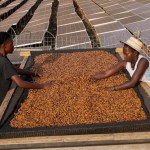(Juba) – High level discussions between Sudan and South Sudan on the future of oil transit and processing arrangements have ended without a formal agreement, exposing deep seated logistical and financial challenges affecting South Sudan’s oil dependent economy.
The meetings held in Port Sudan focused on revising the current fee structure that South Sudan pays to export its crude oil through Sudanese infrastructure. Although Sudanese officials described the talks as “constructive,” technical teams from both countries acknowledged that substantial disagreements remained—particularly around logistics at the Bashayer oil terminal, which has been impacted by the ongoing conflict in Sudan.
South Sudan relies entirely on Sudan’s pipelines and port facilities to reach international oil markets. Following nearly a year of halted exports caused by war-related damage to the pipeline infrastructure, Juba had recently resumed limited oil flow. However, output remains well below previous levels. Technical assessments indicate that only 28,000 barrels per day (bpd) are currently being pumped, a sharp decline from the 90,000 bpd rate before the conflict.
During the discussions, the two sides reviewed multiple issues including transit fees, processing charges (calculated based on crude quality), and post-war adjustments to pipeline operations. No consensus was reached, and officials confirmed that talks would continue both in Juba and Port Sudan.
The negotiations take place as Sudan continues to reel from a devastating civil war between the Sudanese Armed Forces and the Rapid Support Forces (RSF), which has killed tens of thousands and displaced over 13 million people. The conflict has left much of the country’s infrastructure in disrepair and further complicated regional economic ties.
Under a 2012 agreement, South Sudan pays a comprehensive fee of more than $25 per barrel for the use of Sudan’s oil facilities. This amount includes charges for transit, processing, and what is known as a “sovereign fee.”
As part of a transitional financial arrangement, South Sudan agreed to pay Sudan $3.028 billion over several years. To date, Juba has paid $2.5 billion, leaving roughly $500 million still outstanding.
Officials from South Sudan expressed their willingness to resume full-scale oil production, but emphasised the need for security guarantees and significant infrastructure repairs before such a step could be viable. In the absence of a clear agreement, the country’s economy remains under pressure. Oil revenues account for about 95% of government income.
Internal political uncertainty in South Sudan has added to the complexity of the situation. The recent arrest of Oil Minister Puot Kang Chuol—an ally of detained First Vice President Riek Machar—has raised concerns over governance and continuity in the country’s energy policy.
Both governments reaffirmed their intention to continue dialogue, with upcoming rounds of negotiations planned in both capitals. However, unless key logistical, financial, and security issues are resolved, oil exports from South Sudan will likely remain below capacity, limiting much needed economic recovery for both nations.


















































